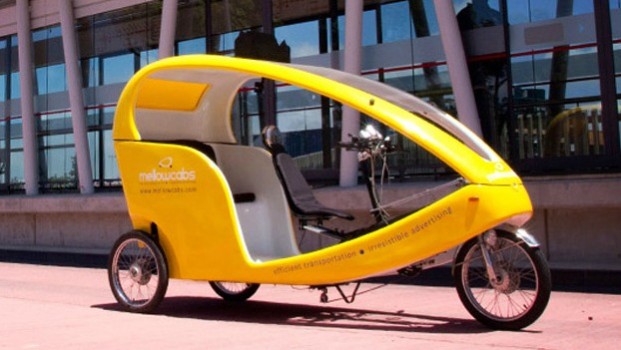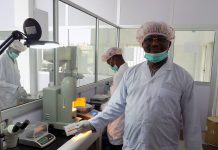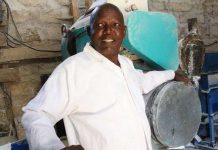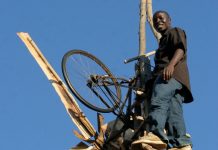A column highlighting scientific, technological, engineering, and design innovation in Africa)
South African entrepreneur Neil du Preez developed the Mellowcab as an eco-friendly means of public transport for micro distances – within a radius of 3 kilometers, or about 2 miles – mainly in urban areas. It is designed to facilitate the so-called first and last miles of a commute, such as the distance between a train station, bus stop or parking lot and the commuter’s office or home, or between a conference center and a hotel.
The vast majority of South Africans who commute cover such distances by public transport or on foot. Sixty-five percent of trips in urban areas are said to be less than four kilometers. Du Preez, a former agricultural chemist, envisioned offering the cab service for free, with income generated from advertising on the exterior and interior of the vehicle.
Manufactured in South Africa from recycled materials, Mellowcabs are hybrid vehicles, powered by both pedal and electric motors. They feature cutting-edge technologies, including human-powered charging; regenerative braking, whereby energy is extracted from the parts braked to be stored and reused; Hydrogen fuel cells; and illuminated body panels.
On-board tablet computers loaded with Mellowcab’s proprietary software can connect to a passenger’s social media accounts, allowing the passenger to load pictures or comments during the ride. Geo-location software triggers specific advertisements as it approaches an advertiser’s business, such as a store, restaurant.
The tablet also comes with a payment platform, vehicle tracking, and language options, and offers augmented reality, in which hereby it displays relevant information when held up to a specific structure or site.
While they are designed to cover short distances, Mellowcabs can provide more than 100 km of transport per day overall. A driver-ownership plan allows local drivers to purchase the vehicles over time. Because they hold full international road-worthy status, they can be sold overseas.
Du Preez and his business partner, Kobus Breytenbach, a business development and corporate executive in mining and energy, say they plan to build and operate at least one Mellowcabs charging station that makes use of renewable energy sources, such as solar or wind power, every 12 months.













